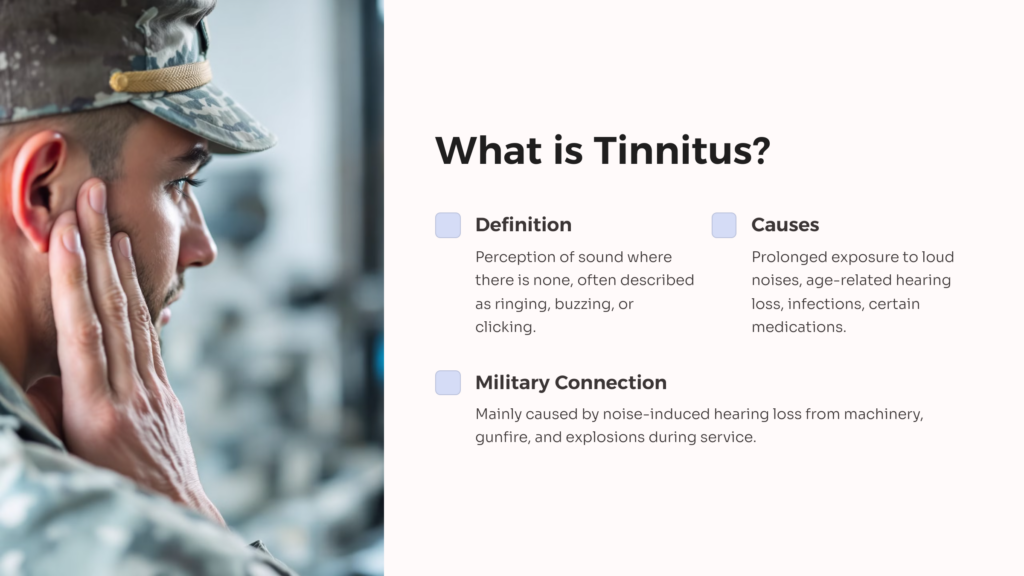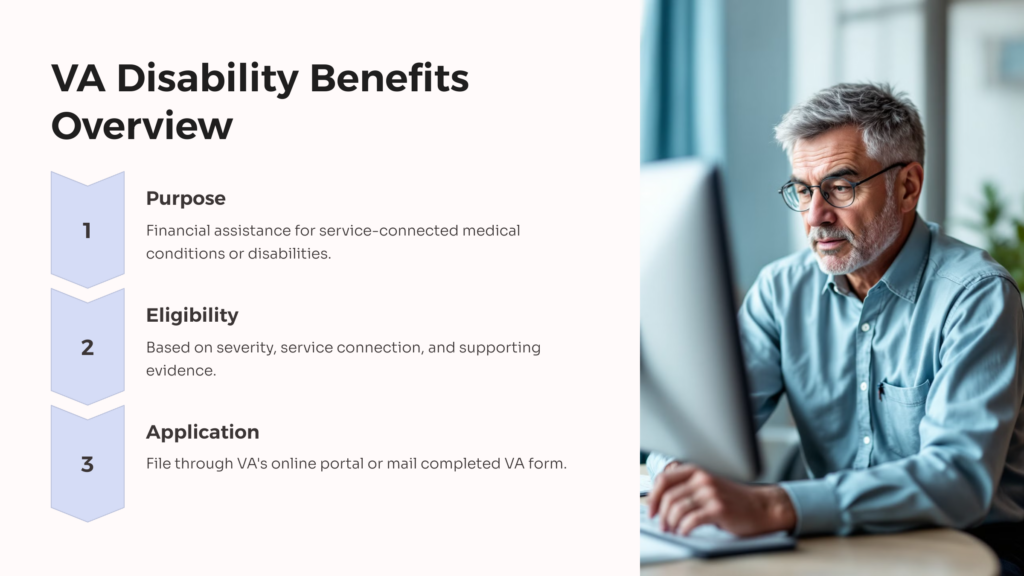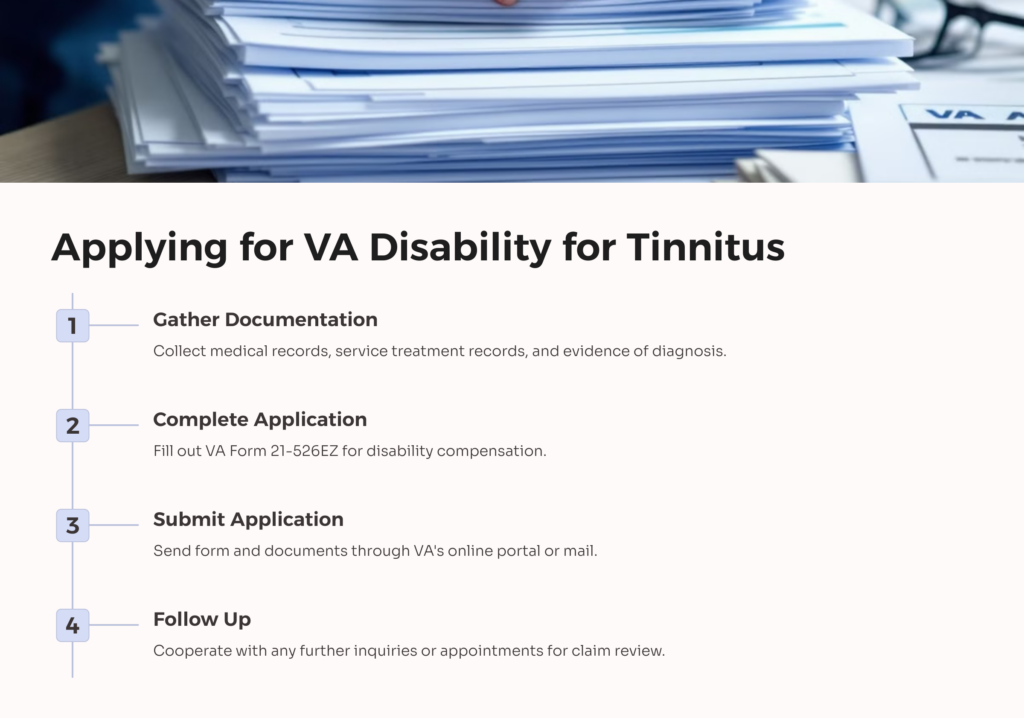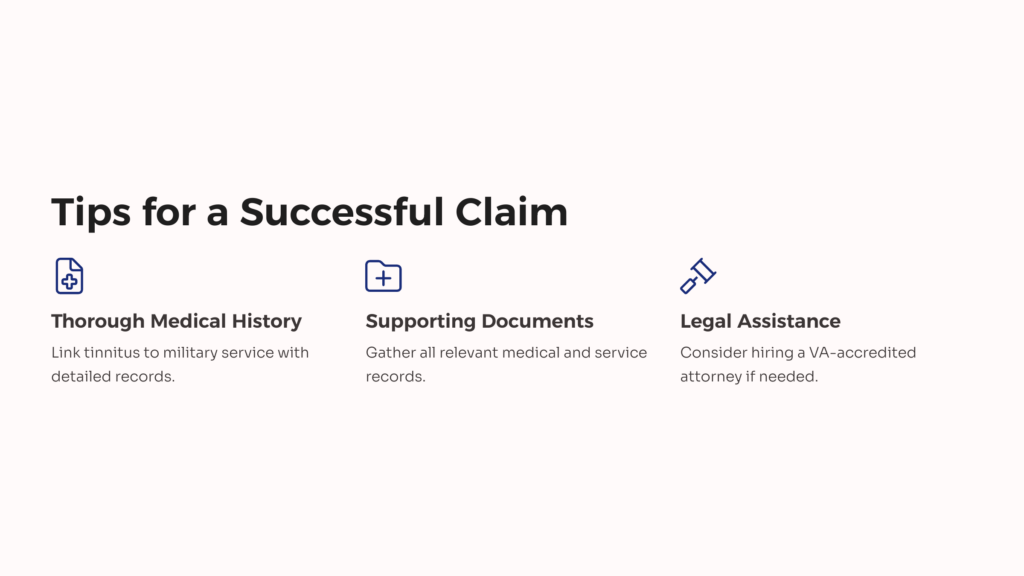Tinnitus, a common health concern among military veterans, is a persistent noise or ringing in the ears not attributed to an external source. The Department of Veterans Affairs (VA) reports that tinnitus is the most claimed disability among veterans, with over 2.8 million veterans currently receiving VA disability benefits for this condition. The prevalence is highest among military service members, with the loud and continuous noise of military-grade machinery and weapons being a significant contributor. It’s essential to understand the connection between military service and the onset of tinnitus to provide the right kind of support and healthcare for each veteran.

Understanding Tinnitus
Tinnitus, as defined by the American Tinnitus Association, isn’t a disease in itself but rather a secondary condition or symptom of an underlying health condition. Tinnitus causes individuals to perceive sound where there is none, often described as a ringing, buzzing, clicking or swooshing sound in the ear. It can stem from numerous causes, including prolonged exposure to loud noises, age-related hearing loss, ear and sinus infections, and certain types of medications. For military veterans, the main contributor to tinnitus is often noise-induced hearing loss from exposure to loud machinery, gunfire, and explosions during service.
Understanding VA Disability Benefits

Veterans Affairs (VA) disability compensation benefits are designed to provide financial assistance to veterans who have medical conditions or disabilities incurred or aggravated during active military service. The eligibility for these veterans disability benefits is evaluated based on the severity of the disability, its service connection to active duty or military service, and significant supporting evidence (medical records and doctors’ reports). The VA claim application process involves filing a VA disability claim through the VA’s online portal or by mailing a completed application VA form.
Tinnitus as a VA Disability Condition
Tinnitus has been part of the VA’s list of disability conditions for quite some time, primarily due to its prevalence among military veterans. Tinnitus claims are assessed using the VA disability rating system. However, the tinnitus VA rating is typically set at 10% because it’s inherently subjective – the severity and its impact on the daily lives of those affected can vary significantly. Yet, this 10% VA disability rating can equate to substantial financial support for living with the condition.
How to Apply for VA Disability for Tinnitus

Applying for VA disability benefits for tinnitus involves several steps:
- Gathering all necessary medical documentation and evidence such as your service treatment records and any additional medical records that show your diagnosis and treatment.
- Filling out the VA Form 21-526EZ, ‘Application for Disability Compensation and Related Compensation Benefits.’
- Submitting the application form with the necessary medical documents and records either through the VA’s online portal or by mail.
- Cooperating with any further inquiries or appointments necessary for claim review.
This process serves as a general guideline, but it’s recommended to visit the VA’s official website for more detailed instructions.
Tips and Advice for a Successful Claim

A successful VA claim heavily relies on a thorough medical history that can link your tinnitus to military service. This includes any in-service ear injury, any complaints about ear problems during service or right after discharge, and any record of noise exposure during service. Gathering all supporting documents like medical and service records is crucial for your claim. In some cases, hiring an experienced VA-accredited attorney can also be beneficial, especially if the application process becomes overwhelming or if your claim is initially denied.
Denials and Appeals Process
Claims for tinnitus VA disability are sometimes denied due to lack of medical evidence or service connection. If your tinnitus claim is denied, don’t be disheartened. There is an appeals process available. The first step is to read and understand the reason for denial. Then, you can submit a ‘Notice of Disagreement’ to the VA. This launches the appeals process. It could also be helpful to seek the assistance of a VA-accredited attorney during this stage.
Living with Tinnitus: Coping Strategies and Treatments
Living with tinnitus daily can be challenging, but there are diverse treatments available. These treatments, which range from noise suppression devices to medications, can help manage symptoms and potentially reduce the intrusive noises. Developing a healthy lifestyle that includes good sleep habits, regular exercise, and mindful relaxation can also be beneficial. Given that tinnitus can affect mental health, seeking the support of a mental health professional or a support group is also crucial.
Concluding Thoughts
Obtaining VA disability benefits for tinnitus with a tinnitus VA rating is significant for veterans. It not only acknowledges the sacrifices they have made but also provides meaningful support as they navigate life with this condition. It can be a daunting process, but support is available, and veterans shouldn’t hesitate to seek the help and benefits they deserve.
 AllVeteran.com Advisors
AllVeteran.com Advisors
With expertise spanning local, state, and federal benefit programs, our team is dedicated to guiding individuals towards the perfect program tailored to their unique circumstances.


















